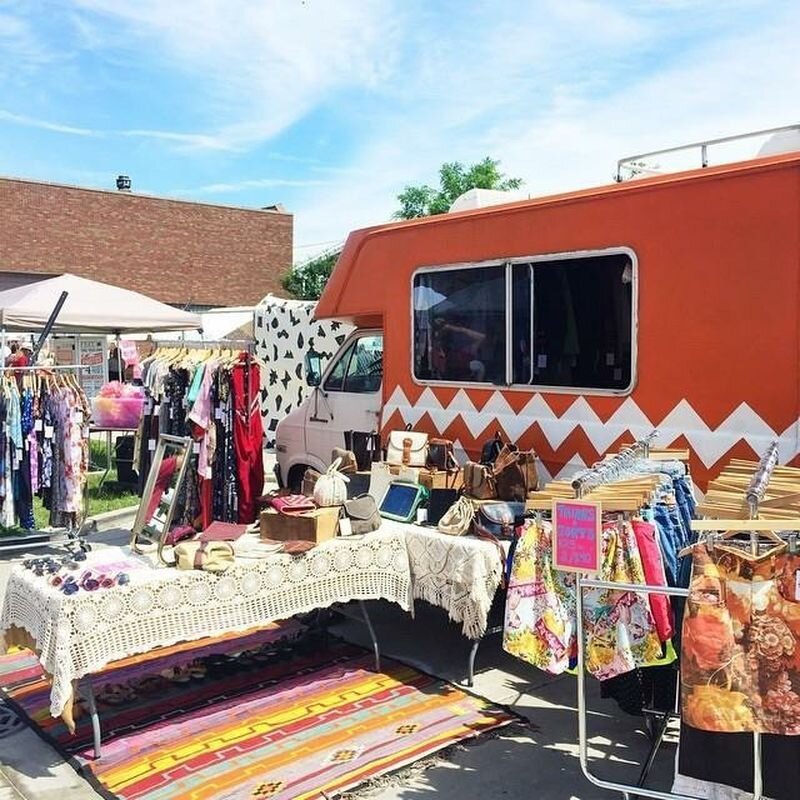How Fashion is Shortchanging Global Garment Supply Chains During Covid-19
Covid-19 has obviously presented the world with challenges like never before. As industries, schools, businesses, and communities adapt to life during the pandemic, they prove to be a source of innovative ideas when it comes to coping with working remotely. Too often the news coverage we see is either focused on the crisis itself or the positive news of large brands making long-demanded changes to their company practices. The flip side of shiny rebranding initiatives, however, is the impact on the unprotected workers in the very bottom of global supply chains.
I’m willing to bet that throughout your own social distancing experience you have noticed the sudden uptick in retailer’s large scale sales up to nearly 70% off. This is no coincidence. In a time when the demand for new clothing is relatively low, companies are having an increasingly difficult time to meet their predicted number of garment sales. The unprecedented combination of employment uncertainty and lack of places to physically go to during the pandemic has resulted in reduced clothing purchases.
Multi-billion dollar corporations and global luxury fashion retailers can absorb many of these losses in sales, but many fast fashion brands that rely on a massive supply of inexpensive garments are lessening the strain on their companies at the expense of some of the most vulnerable people around the world.
Garment workers in Bangladesh via
A research paper written by Dr Mark Anner published by the Center for Global Worker’s Rights found that more than half of clothing suppliers in Bangladesh had their orders canceled, many of which were already completed or in-process. Of those canceled orders, approximately 72% of buyer corporations refused to pay for the materials that were purchased in advance for these orders. Over 91% of buyers refused to pay for the production cost of these goods. Why is this so impactful? Let’s break it down.
The global garment production industry food chain is composed of you (the consumer), the fashion retailer (store or brand you purchase clothing from), the garment supplier (factory), the raw materials supplier, and the factory workers. There are obviously other jobs and services involved in this process, such as shipping, marketing, etc, but for simplicity's sake we will use this rough schematic of how your clothing ends up in your closet. When clothing brands design a specific article of clothing, they send an order to their garment suppliers (factories), indicating the materials to be used, the amount of the particular item to be made, and the compensation for the materials and labor necessary to create the garment. The critical thing to understand in this process is that most companies pay for the goods only after they have been received. That is, factories must pay upfront for the raw materials necessary to create the clothing and get compensated for the expense only after the goods have been shipped to and received by the retailer. The factory must also pay its workers for their labor in creating the clothing you wear. The compensation for this is also settled after the clothing has been made and delivered.
At the beginning of the Covid-19 pandemic, Chinese factories were put under strain. As many cities and provinces in China shut down to prevent the spread of Covid, production lines were interrupted, causing the delay of raw materials delivery to other factories responsible for garment production. The disruption of the supply chain caused subsequent delays in garment production in places like Bangladesh and Cambodia. This disruption in the supply chain can be penalized by the buyer (fashion retailer or brand). In fact, over 50% of factories in Bangladesh reported that the buyer took a fine out of their payment for the delays caused in producing the goods. Furthermore, the majority of factories reported that the cost of raw materials during this time increased. At the same time, nearly 92% of factories reported that their buyer has not adjusted their payments in accordance with the increase in price of raw materials. In effect, garment suppliers are paying the extra cost of raw materials and are forced to pay for a fine due to the delay in production while the international fashion retailer refuses to cover the additional expenses incurred...in the middle of a pandemic.
Via: https://www.workersrights.org/research-report/abandoned-the-impact-of-covid-19-on-workers-and-businesses-at-the-bottom-of-global-garment-supply-chains/
If that doesn’t sound harrowing enough, I’m sorry to say that it gets worse. As the economic impact of the pandemic began to set in, buyers began to cancel their orders, including those already in production. To put it in perspective, Bloomberg estimates that the cancellations of orders were worth over $1.5 billion by April alone. Naturally, this forced many factories to close because they often times operate on narrow margins. Having never received compensation for the raw materials or the labor involved in the manufacturing process, they subsequently are forced to put many people out of jobs and leave families without primary sources of income. This, among other actions, technically broke contractual obligations on the side of the buyer. But for many factories and their workers there were no means of recourse.
Via: https://www.workersrights.org/research-report/abandoned-the-impact-of-covid-19-on-workers-and-businesses-at-the-bottom-of-global-garment-supply-chains/
As of October 2020, an estimated $16bn worth of goods have been unpaid for by retailers, forcing many overseas garment suppliers to permanently shut down and leaving millions of workers without compensation. The current garment supply industry heavily favors the buyer, leaving the suppliers to take on all the economic risk associated with producing clothing. Even so, many companies now are still trying to find loopholes in their contracts to avoid being responsible for their practices on both the economic and safety fronts.
Popular fast fashion retailer ASOS has come under fire for insufficiently protecting the health of their factory workers. In factories that regularly employ approximately 4,000 people, ASOS is reported to have limited safety precautions in place and the supply of personal protective equipment is insufficient to prevent the spread of Covid-19. The company is not the only one with shady practices during Covid; as of October 1, 2020, JCPenny, Kohl’s, Walmart, Balmain, Oscar de la Renta, Anthropologie, Urban Outfitters, Topshop, and T.J. Maxx, among others, have failed to make commitments to pay for completed orders cancelled during production.
While the tumultuous 2020 has caused many retailers to consider their social impact, collectively, the industry shows to be resistant to change. As Dr. Mark Anner at the Center for Global Workers Rights puts it, “All parties are feeling the extreme burden caused by Covid-19. However, not all parties are equally situated to find the liquidity needed to cover their expenses.” Specifically, it is the irresponsible and unethical practices of global retailers, fueled by the purchases of the unawares consumer, that causes damage and instability to communities the world over. The recent uptick in companies rebranding as sustainable and accountable should raise concern in consumers as company malpractice continues during Covid. It’s incredibly easy to proclaim that a company has taken a stance on racial justice or the environment, but it is a lot more difficult to follow through on those promises or to extend the same privileges to minimum wage workers overseas, who often pay the tremendous personal costs in times of crisis and remain largely unseen and uncompensated.
For more information on tracking the accountability of major corporations, take a look at the Workers Rights Consortium’s project and Covid-19 responsibility tracker here.
Cover image via.











